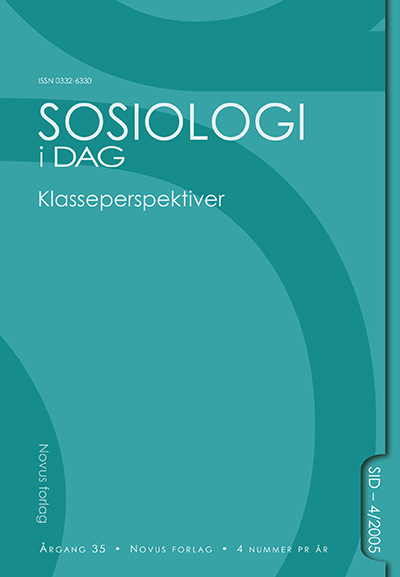Sammendrag
Abstract
The article is concerned with the creation of a subjective understanding of ones own position among working class women. Based on a fieldwork among ethnic Norwegian women who work as supermarket cashiers and cleaners, the author explores the distinctions that are made between women defined as working class and other groups, especially ethnic Norwegian middle-class women and male colleagues from ethnic minorities. It has been claimed that it is more difficult for women to find pride in an identity as working class than it is for men. The reason for this is that working class men are associated with a no-nonsense hard-working masculinity that is considered worthy in the broader society, while working class women are defined through what they lack compared to other groups. The author argues that in focusing on their worth as 'ordinary', 'hard-working' and 'decent' women, it is possible to reformulate a position low in the formal hierarchy in society to a position of recognizable worth. The women formulate this in opposition to middle-class women as mothers and to men from minority backgrounds as workers, and they describe these others as lacking, compared to themselves. The example shows the complexity in the relationship between different processes, such as class, ethnicity and gender, and between objective class position and subjective distinctions.
Keywords: Class, gender, ethnicity, family, work
Authors who publish with this journal agree to the following terms:
Â
- Authors retain copyright and grant the journal right of first publication, with the work 1 year after publication simultaneously licensed under a Creative Commons Attribution License that allows others to share the work with an acknowledgement of the work's authorship and initial publication in this journal.
- Authors are able to enter into separate, additional contractual arrangements for the non-exclusive distribution of the journal's published version of the work (e.g., post it to an institutional repository or publish it in a book), with an acknowledgement of its initial publication in this journal.
